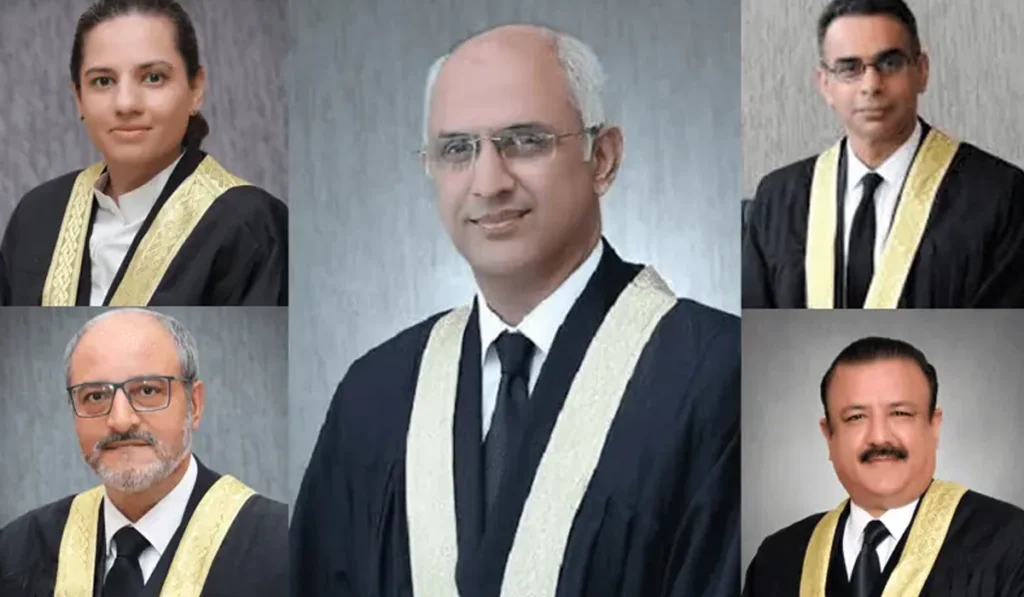- Web Desk
- Feb 19, 2026
SC Registrar’s Office returns petitions of five IHC judges with objections
-

- Web Desk
- Sep 22, 2025

ISLAMABAD: The Supreme Court Registrar’s Office has returned the petitions filed by five judges of the Islamabad High Court after raising objections.
The petitions had been filed separately by Justices Tariq Mehmood Jahangiri, Mohsin Akhtar Kayani, Babar Sattar, Saman Rafat Imtiaz and Ejaz Ishaq Khan, who challenged what they described as the unconstitutional use of administrative authority within the high court.
According to sources, the Registrar’s Office rejected the petitions on the grounds that the applicants had not clarified which matter of public importance was involved or which fundamental rights were violated to justify invoking the jurisdiction of Article 184(3).
It further noted that the petitions were filed under the extraordinary jurisdiction of Article 184(3) on the basis of personal grievances, whereas the Supreme Court’s ruling in the “Zulfiqar Mehdi vs PIA” case does not allow such petitions.
The objections added that the requirements of Article 184(3) had not been met, as the judges failed to specify solid reasons for filing the constitutional petitions or to clarify the parties to be notified.
In their petitions, the judges argued that administrative powers must not be used to weaken or override the judicial authority of high court judges.
They contended that once a case had been assigned to a bench, the chief justice of a high court had no authority to form a new bench or transfer the matter.
The petitioners further said the chief justice could neither exclude available judges from the roster at will nor use this power to remove judges from judicial responsibilities.
They added that bench formation, case transfers and issuance of rosters could only be carried out in line with rules approved by all high court judges under Articles 202 and 192(1) of the Constitution.
President Zardari issues decision on IHC judges’ seniority
The applicants also maintained that decision-making regarding bench formation, rosters and transfers could not rest solely with the chief justice, as the “master of the roster” doctrine had already been struck down in Supreme Court judgments.
The petitions further challenged the administrative committees formed through notifications issued on February 3 and July 15, terming them mala fide, unlawful and void. The Supreme Court was requested to declare those notifications and all subsequent actions of the committees illegal.




